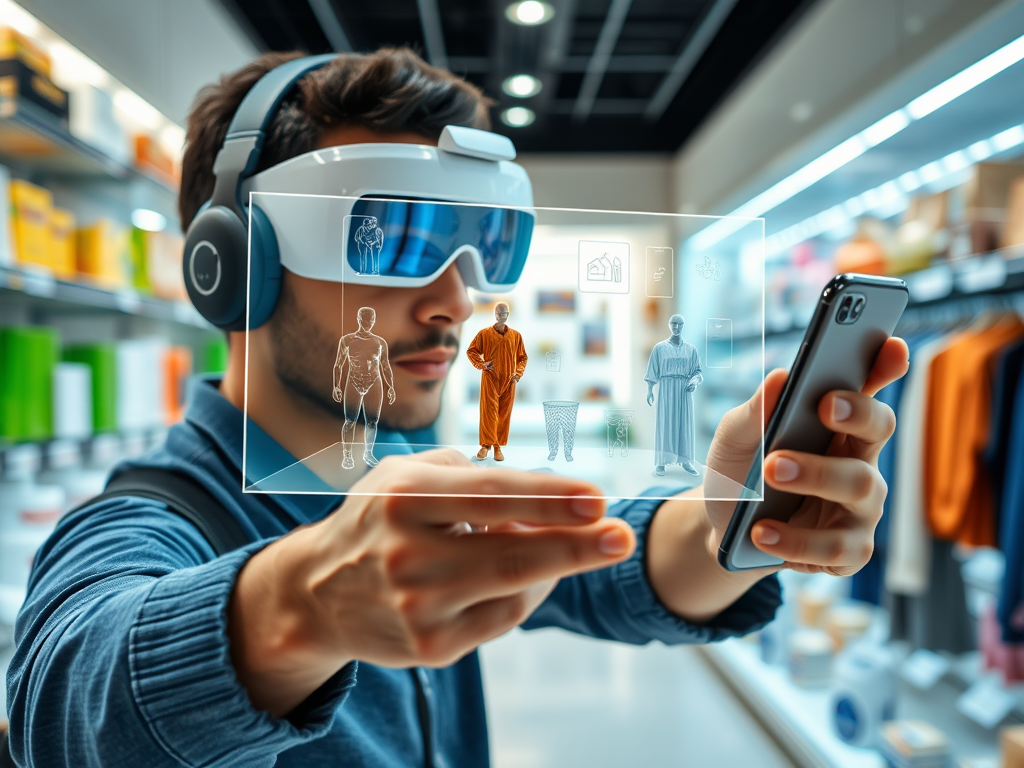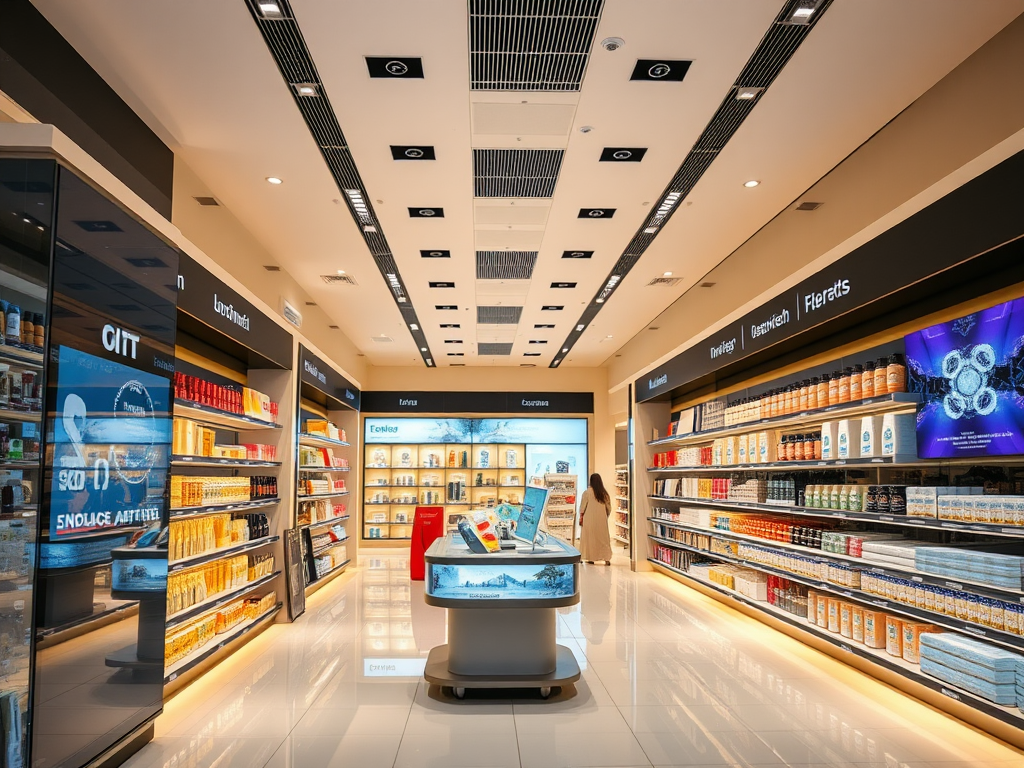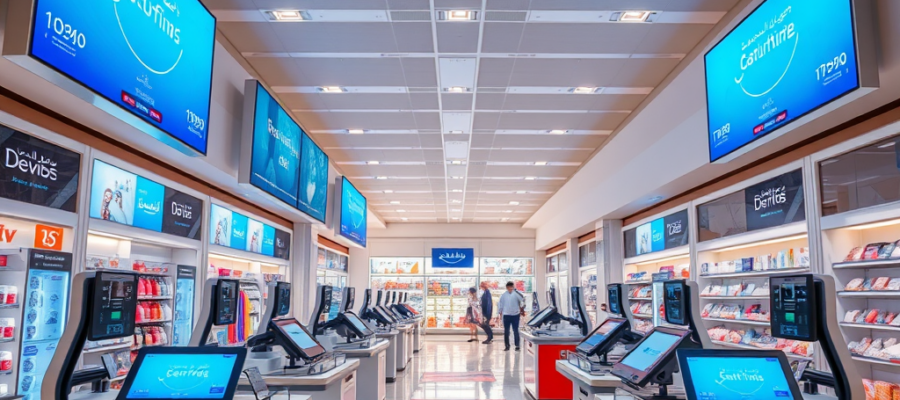Dubai’s smart retail stores represent a significant leap forward in the shopping experience, blending innovative technology with consumer convenience. These stores leverage advanced digital tools and data analytics to create personalized environments that cater to customers’ needs. With the ongoing development of smart cities, Dubai is positioning itself as a leader in the retail sector by enhancing the shopping experience through technology. From automated checkout systems to augmented reality displays, the potential for smart retail in Dubai is immense. This article dives into various aspects of smart retail stores in Dubai, including their features, advantages, and the future landscape of retail in the city.
What Are Smart Retail Stores?

Smart retail stores are physical retail environments that utilize cutting-edge technology to improve the shopping experience. These stores incorporate various technological innovations aimed at providing a seamless and efficient customer journey. Key features of smart retail stores include:
- Digital Signage: Interactive displays that adapt to customer preferences and provide real-time information.
- Contactless Payments: Solutions enabling fast and secure payment methods without the need for traditional cash or card transactions.
- IoT Integration: Smart shelves that track inventory in real-time, notifying staff when stocks are low.
- Personalization: Custom experiences based on consumer data and shopping history.
- Augmented Reality (AR): Applications allowing customers to visualize products in a more engaging, interactive manner.
Advantages of Smart Retail Stores in Dubai

The adoption of smart retail technology offers numerous advantages for both retailers and consumers in Dubai. Some of the most notable benefits include:
- Enhanced Customer Experience: The integration of innovative technology leads to an improved shopping experience, making it easier for consumers to find and purchase items.
- Increased Efficiency: Automated processes reduce the time customers spend in-store and streamline operations for retailers.
- Better Inventory Management: Real-time tracking of products ensures higher efficiency in stock management, minimizing waste and improving sales.
- Higher Customer Engagement: Interactive displays and personalized recommendations foster a more engaging shopping atmosphere.
- Cost Savings: By reducing labor costs through automation, retailers can allocate resources to other critical areas, leading to better profitability.
Challenges Facing Smart Retail Stores
While the potential for smart retail stores in Dubai is vast, there are also formidable challenges that stakeholders must address. Some of these challenges include:
- High Initial Investment: The cost of implementing smart technologies can be a significant barrier for many retailers.
- Data Privacy Concerns: With the rise of data-driven retail solutions, concerns about customer data privacy and security have also increased.
- Technology Integration: Seamless integration of existing systems with new technologies can be complicated and time-consuming.
- Consumer Adaptation: Not all customers are comfortable with new technologies, which can hinder widespread adoption.
- Maintenance and Updates: Continuous advancements in technology mean that retail stores need ongoing maintenance and upgrading to stay relevant.
As Dubai continues to emerge as a global retail hub, the future of smart retail stores looks promising. Major factors driving this trend include:
- Government Support: The UAE government is heavily investing in smart city initiatives, promoting technological advancements across sectors.
- Consumer Demands: Millennials and Gen Z consumers prioritize convenience and personalization, thus driving the development of smart retail solutions.
- Collaborative Environments: Partnerships between technology companies and retailers can lead to innovative solutions that benefit both parties.
- International Investment: Increasing interest from global brands looking to establish a presence in Dubai’s thriving market will further escalate competition and innovation in the sector.
- Sustainability Trends: Smart retail solutions can include environmentally friendly practices, aligning with the global push for sustainability.
Conclusion
Dubai’s investment in smart retail stores is paving the way for a transformational shift in how consumers engage with brands, making for an exciting future in the retail sector. With advanced technologies enabling enhanced customer experiences and operational efficiencies, retailers can thrive in a dynamic market. However, overcoming the challenges associated with smart retail technologies is essential to harness their full potential. As the retail landscape continues to evolve, Dubai stands at the forefront of this movement, ultimately redefining the shopping experience of the future.
Frequently Asked Questions
What are smart retail stores?
Smart retail stores are physical locations that leverage advanced technology, such as IoT, AR, and automated payment systems, to enhance the shopping experience for customers and streamline operations for retailers.
What advantages do smart retail stores offer?
Substantial benefits include improved customer experience, increased efficiency, better inventory management, heightened customer engagement, and cost savings through automation.
What challenges do smart retail stores face?
Challenges include high initial investments, data privacy issues, technology integration difficulties, consumer adaptation, and the need for ongoing maintenance and updates.
How is the UAE government supporting smart retail initiatives?
The UAE government is investing significantly in smart city projects that promote technology innovations across various sectors, including retail.
What factors are driving the future of smart retail in Dubai?
Driving factors include government support, changing consumer demands, collaborative environments, international investments, and trends in sustainability.
